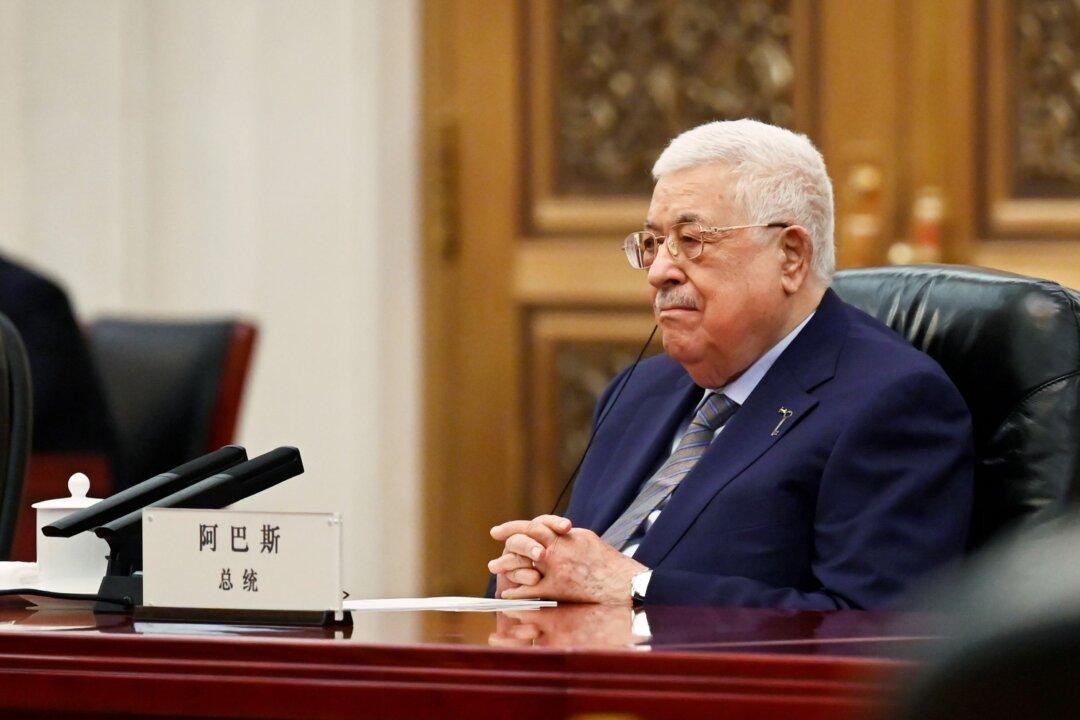Palestinian leader Mahmoud Abbas wrapped up a trip to China Friday after seeking economic aid and voicing support for Beijing’s repressive policies toward Muslim minorities in the northwestern region of Xinjiang.
During his four-day visit, Abbas met with head of the ruling Chinese Communist Party (CCP) Xi Jinping. The leaders then issued a joint statement endorsing Beijing’s domestic and foreign policies and repudiating Western concepts of human rights.
In the statement, the Palestinian Authority said issues regarding the CCP’s policy toward Muslims in Xinjiang have “nothing to do with human rights and are aimed at excising extremism and opposing terrorism and separatism.”
That echoes Chinese propaganda surrounding the detention of more than 1 million Uyghurs, Kazakhs, and other Muslim minorities in prison-like detention centers on little or no legal grounds—often merely for having a relative studying abroad or downloading the Koran onto their phones.
According to estimates from researchers, the CCP has detained more than one million Uyghurs and other ethnic minorities in internment camps in Xinjiang, where they are subjected to torture, rape, forced labor, and political indoctrination by the CCP.
In 2020, the Trump administration declared the CCP’s repression of Uyghurs a genocide. The declaration was later echoed by nearly a dozen parliaments, including in the European Union, the United Kingdom, and Canada.
The CCP says the widely-documented complex of heavily-guarded centers were intended to purge radicalism spread over the internet and provide vocational training—and have now been shut down. Critics say many have been turned into prisons.
The CCP has campaigned furiously to counter the outside criticism, and in the competition for resources and markets, Arab states have almost never openly expressed concern over Beijing’s treatment of Muslims.




